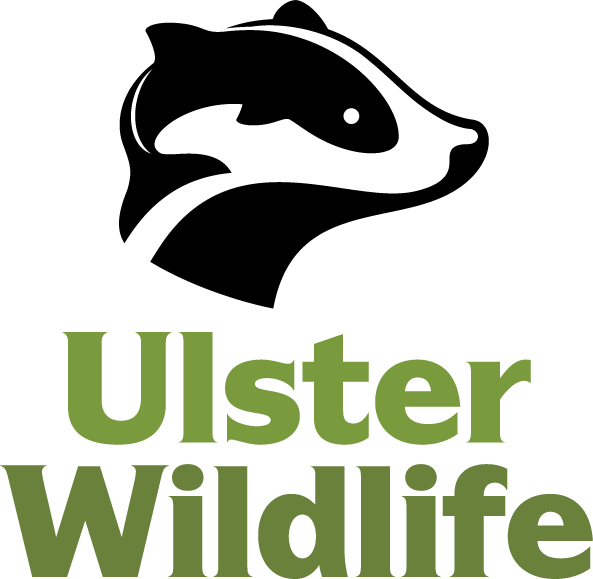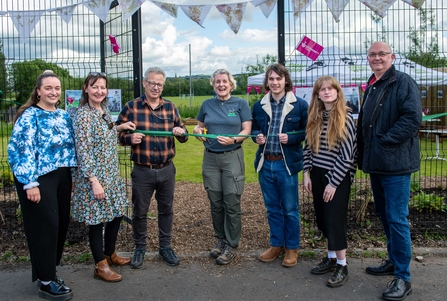The welcoming space is the result of a dedicated six-month effort by a diverse team of local volunteers. Despite facing the challenges of the third wettest year on record, volunteers dug deep and rolled up their sleeves to create a sustainable and wildlife-friendly garden, thoughtfully designed for both people and wildlife to enjoy.
This week, a celebratory event was organised by local nature conservation charity Ulster Wildlife to welcome residents and to thank the volunteers, local community organisations, businesses and funders whose support has made the garden possible.
The garden features vibrant raised beds, constructed by Workforce students, filled with pollinator-friendly plants, herbs, edible fruits and wildflowers – a haven for bees, birds, butterflies and a host of other wildlife. Enhancing the garden’s eco-credentials, all plants are grown in peat-free New Leaf compost, made and donated by Natural World Products.
The addition of a pond, constructed with help from Black Mountain volunteers, ensures a vital refuge for wetland-loving creatures such as frogs and newts. Plus, extra features such as bug hotels, log piles, wild areas, and bird nesting boxes help the space grow just that little bit wilder.
A huge well done to all our volunteers and helpers – this was a fantastic community effort. We now have an attractive and wonderful space where people can connect with nature and improve their health and well-being – a welcome addition to Bog Meadows.
Dawn Patterson, Ulster Wildlife’s Community Engagement Officer at Bog Meadows, who has been the driving force behind the garden, was thrilled to see everyone’s hard work come to fruition.
“A huge well done to all our garden volunteers and helpers – this was a fantastic community effort. We now have an attractive and wonderful space where people can connect with nature and improve their health and well-being – a welcome addition to Bog Meadows.
“Residents and groups can enjoy hands-on gardening sessions and learn how easy it is to garden with nature in mind, all while experiencing the joy and beauty of bees and butterflies, often absent from so many people’s gardens. With nature in trouble, gardens have huge potential to be part of the solution with just a few simple changes.”





